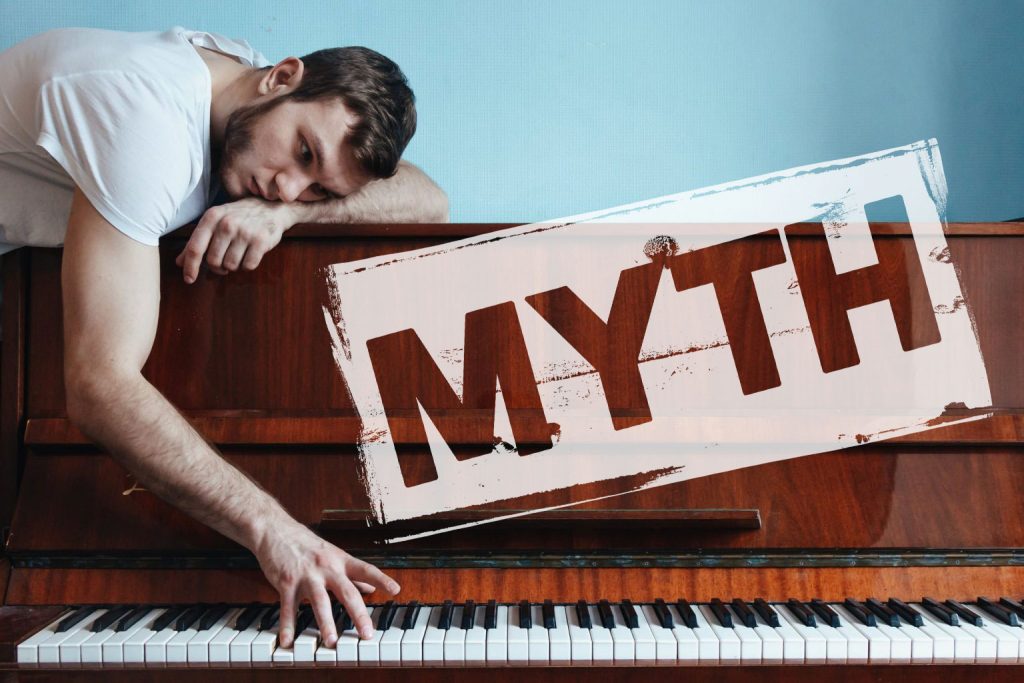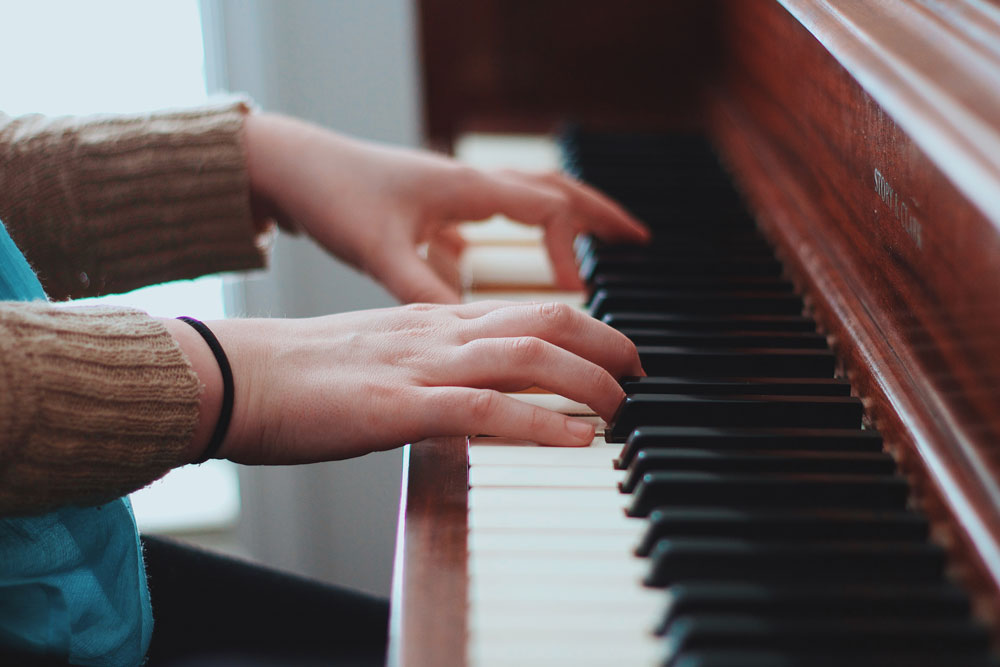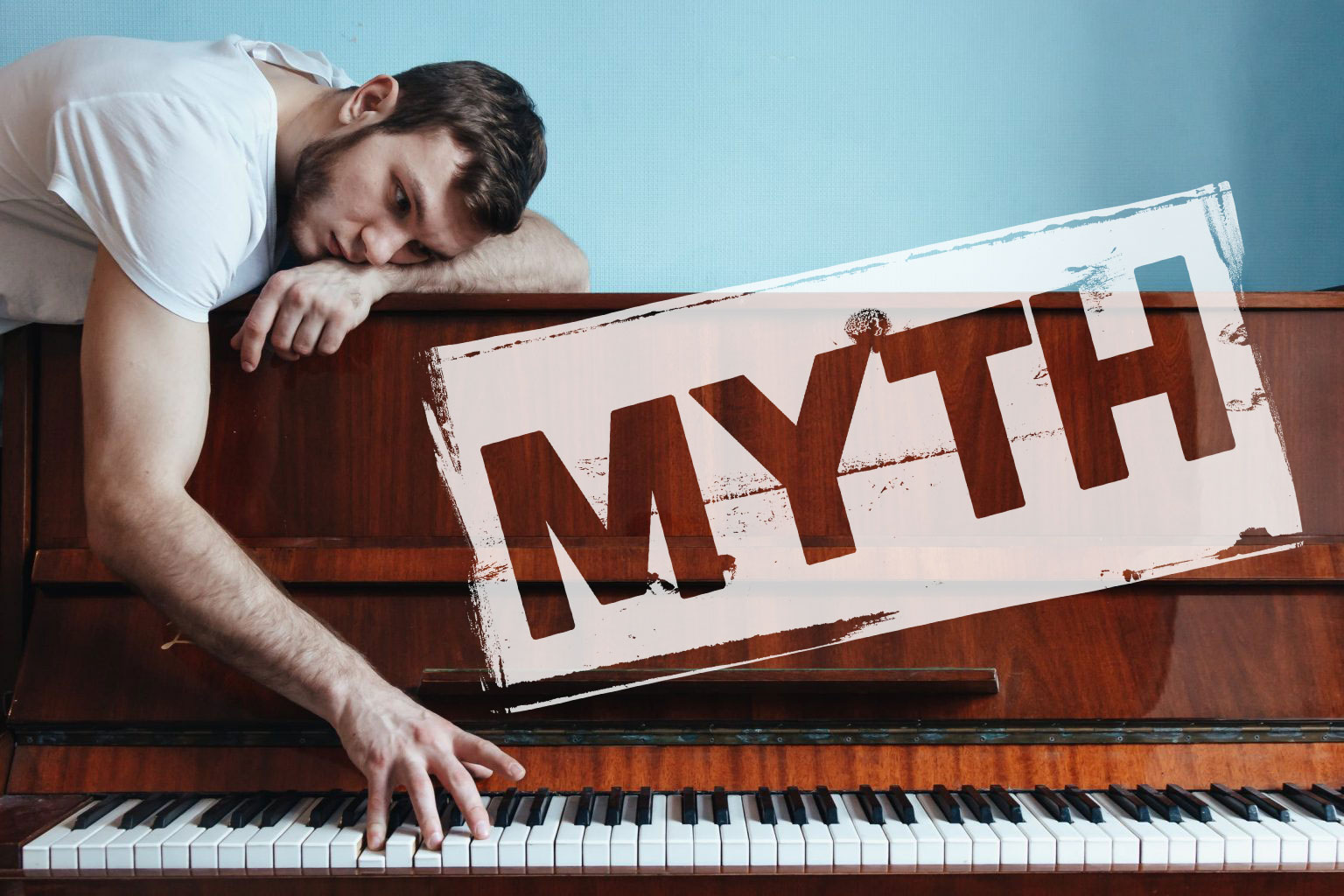You have probably already heard or read about them somewhere. What do the ideal hands of a future virtuoso pianist look like? Does left-handedness hinder or help in achieving mastery? Am I too “old” to learn to play the piano? Should I look at the notes or at my hands while playing? Myths about learning to play the piano circulate around the world, sowing unease in the minds of young pianists. Today we will dispel them.

1. Children learn to play faster than adults
This rather popular view is not true. In fact, it doesn’t really matter at what age you start learning to play the piano. It is adults who are able to concentrate for longer periods of time than children, who are mostly easily distracted. Admittedly, children are less burdened by the stresses of everyday life, and so when they finally manage to focus their attention on learning to play the piano, they assimilate new material faster than adults. However, unlike adults, children sometimes lack the desire and motivation to practise regularly, and sometimes treat playing the piano more as a chore than a pleasure. In fact, enthusiasm and the right motivation are very helpful in learning to play the piano.
How long does it take for adults to learn to play the piano?
It depends on the level at which we want to play, but also on our musicality or the amount of time spend practicing. It can take us from a few months to a few years. Many adults learning to play the piano get discouraged thinking that people who learned to play as children have a better chance of becoming great pianists. Well, you may not become world famous, but you can still be a good musician playing your favourite pieces 🙂 Check out the 4 best grand/upright pianos for beginners.
2. Long and slender fingers will allow you to play better
It’s a very popular belief – long, slender fingers allow you to reach more notes at once, making it possible to play more complex pieces. However, popular does not immediately mean true. In fact, people with long fingers are more prone to making mistakes because their fingers sort of ‘tangle’. If you play the piano but have small hands, don’t give up! It’s all about practicing your piano technique and knowing how to deal with what you have. The right exercises will make those more difficult figures achievable for you no matter what your fingers are like.
3. Don’t look at your hands when you play
Some piano teachers believe that looking at your hands while playing the piano is unprofessional. This is completely wrong and absurd. If you have ever watched a concert, you have probably noticed that professional pianists look at their hands. Such observations allow them to better visualise their music and to better convey the emotions associated with it. Additionally, observing your hands and fingers during practice sessions helps you visually associate the positions of the piano keys with the notes they represent. This can be beneficial for the learning, beginning musician.

4. Playing the piano makes hands more slender and fingers longer
Playing the piano does not affect the structure of your hands, and the shape and length of your fingers is written in your genes. However, if you play a lot, over time your fingers will gain dexterity, become more agile and stretch out. However, the basic bone structure will remain intact, but the tendons in your hands will strengthen. Unfortunately, this does not involve any noticeable change in the shape or size of your fingers.
5. Always warm up your hands before playing
It is quite common for most pianists to warm up their hands before playing the piano. Although this is quite a common practice, it does not mean that it is always necessary. Doing various exercises can help most to warm up their hands and get their fingers used to playing the piano. It is the effectiveness of such exercises that can be quite different for different people. Listen to your body and decide for yourself when and in what form you need such exercises, because maybe you are just made to sit at the piano and play right away.
6. It is harder for left-handed people to learn to play the piano?
You have probably already guessed the answer 😉 If not or if you have any doubts, please read our article: I am left-handed – Can I play the piano?
You may be interested in other themes:


